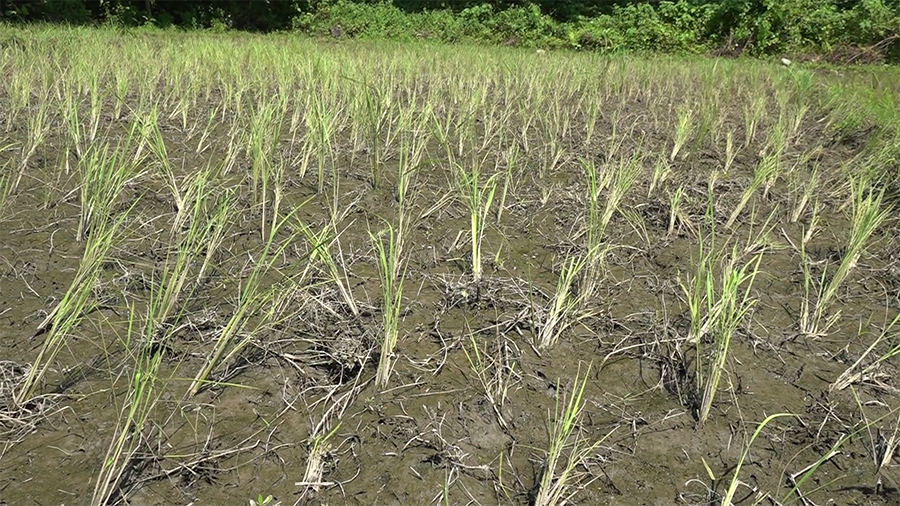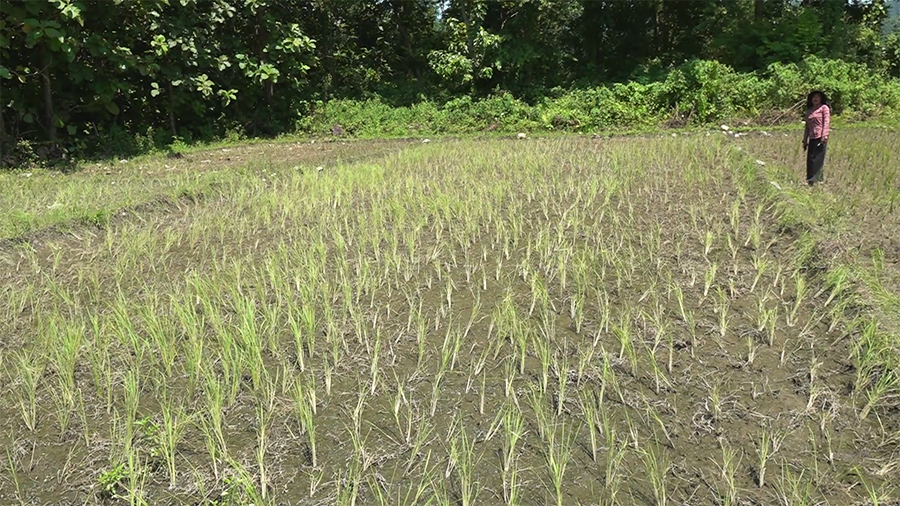
Khamaedthang residents of Phuentshogthang Gewog in Samdrup Jongkhar are struggling to deal with a double trouble posed by pests and disease to their farming efforts. Almost a dozen farmers in the Chiwog have been severely affected by a rice blast outbreak and pest infestation. Rice is one of the staple foods as well as the main source of income for the people in the community.
 It was in August that the paddy plants started to slowly die according to Bishnu Maya.
It was in August that the paddy plants started to slowly die according to Bishnu Maya.
She says most of the paddy in her fields have been damaged by pests.
“Paddies are dying like this, usually it would be green at this time of the year but this time all the paddies have died. We tried every method from using bio-pesticide and releasing water, but none of it worked.”
She says she has lost about an acre of paddies to pest infestation. Bishnu is feeling disheartened after having spent all her resources, time and effort.
She is now contemplating buying rice from the market.
“I cultivated the Khamtey rice since it is profitable. I run the house with the money I get from selling rice, including my children’s education. We don’t have other work here. But this year will be difficult because all the plants are dead.”
Bishnu is among eleven farmers who have lost more than five acres of paddy plants to the outbreaks
“I don’t know what we will eat now because all the paddies are dying,” said Kenti Maya, a villager.
“We have to pay Nu 2,750 for power tiller charges. We used to hire three to four power tillers since one power tiller would not finish ploughing in one day. We spend all our resources during cultivation and now paddies are dying, it is sad,” said Ravi Lal Adhikari, another villager.
The Dzongkhag agriculture officials suspect the armyworms to be one of the culprits damaging the crops.
They added that the Khamtey rice variety is also more susceptible to diseases which is why they have been advising farmers to grow other varieties.
Officials said since the district is promoting organic farming practices, farmers are not provided with chemical fertilizers and pesticides.
However, villagers are being trained to make bio-pesticides using cow urine and plants as well as they are being encouraged to use bio-pesticides to prevent further outbreaks.
Kinley Wangchuk, Samdrup Jongkhar
Edited by Yeshi Gyaltshen










